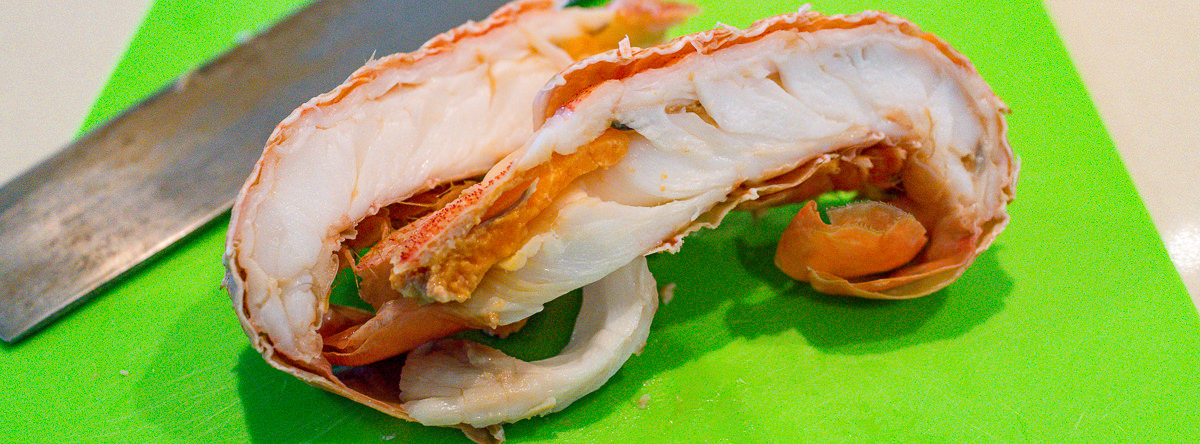Sous vide duck breast with lentils, broccolini, and potato mash.

I was invited to dinner tonight at a friend’s place. Unfortunately, her son has developed an infection, so we’ve rescheduled it to another time.
Fortunately, I had some duck breasts in the refrigerator and frozen potato mash, so the decision for dinner was easy.
Ingredients
- Duck breast
- Iodised salt
- Black peppercorns
- Potato mash (frozen, packet for microwave radiation)
- Broccolini
- Lentils (tinned)
- Butter (salted)
Instructions
Sous vide duck breast.
- Season the duck breast with a liberal amount of iodised salt.
- Put the duck breast into a plastic bag and vacuum seal the bag.
- Heat a water bath to 55 °C and cook the duck breast for 1 hour.
- Remove the duck breast from the vacuum bag.
- Dry the duck breast with absorbent kitchen paper.
- Heat a cast-iron skillet and rub a little high vapour oil on the hot surface of the skillet.
- Score the skin of the duck and sear the skin until it reaches a pleasing colour. What is a pleasant shade, you may ask? As for me, I like a deep golden brown. Some people will go for lighter, and others will prefer darker.
- After searing the duck breast’s skin, set aside the duck breast and let it rest for about 10 minutes.
- With a freshly honed knife, slice the duck breast into slices a few millimetres thick (or thicker if you prefer your meat to be firm and thick).
Potato mash
- Follow the instructions on the packet.
Broccolini and lentils
- Trim the stalks of the broccolini with a paring knife.
- Empty the tin of lentils, rinse under cold water, and then drain with a sieve.
- Wash the broccolini under running water.
- After the duck breast has finished searing in the skillet, add a nudge of salted butter to the skillet and then add the broccolini and lentils.
- Cook the broccolini and lentils with a lid on the skillet.
- Cook the broccolini to your preference.
Plating up
- Spoon the potato mash onto a warm dinner plate.
- Lay the slices of rested duck breast on the potato mash so the mash can absorb the meat juices, which will continue to ooze out of the meat. You don’t want to waste a drop of the tasty savoury juices.
- Place the broccolini next to the potato mash and then spoon the lentils next to the potato mash.
- Spoon the burnt butter by dribbling it over the duck breast, and it too will be soaked up by the potato mash.

Vacuum packed duck breasts 
Dick Boning knife and Dick Butchers knife 
Sous vide duck breast with lentils, broccolini, and potato mash 
Sous vide duck breast with lentils, broccolini, and potato mash
Final thoughts
It’s always worth having something in the refrigerator in case of plans falling through.
I hope my friend’s son feels better soon.



































